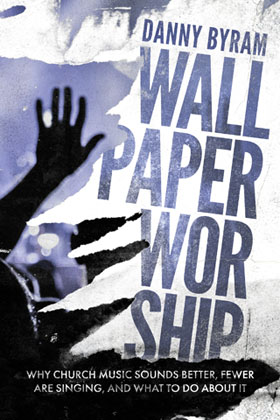
As much as we may think what’s happening today is rare – which it is in western civilization over the past few hundred years – it’s happened before. The church has found itself unable to meet together throughout history.
For example, during the black plague of the medieval period, many local churches were simply wiped out because entire memberships died. After the Reformation, churches were raided and worshipers killed for following Luther’s teachings – and vice versa, driving worshipers away from corporate gatherings and into their homes. During the Thirty Years War in Europe (1618-1648) deaths were so common and devastating that many simply found it discouraging to gather for corporate worship. Home-based gatherings thrived.
In mid-19th century America, the Civil War caused similar devastation resulting in some abandonment of corporate meetings for worship. For instance, during the five years we resided in Franklin, TN, we attended Christ Community Church, which at the time was gathering in the old First Baptist building, not far from the historic site of the Battle of Franklin (a late-in-the-war failed attempt by Confederates to take back their Union-occupied town).
During our time at the Franklin church, a staffer found the archives of the original First Baptist which had attendance rolls dating back to the early 1800s. Following the Battle of Franklin, no one met for worship for a long period. Reason? Every male member of the church was killed. Only a grandpa and his granddaughter met Sunday after Sunday. Apparently, the widows could not bring themselves to gather for worship socially. Too much sadness.
The most familiar stories to Christians of “house church” are the references throughout Acts of The Apostles, as they met from home to home for meals, chanting, reading of the Psalms and Prophets and later, the public readings of Paul’s letters. The first three centuries of church persecution guaranteed that corporate worship gatherings were not even a consideration. Christians met in secret until Constantine made Christianity the official religion of the Roman Empire. The church-empire began: cathedrals, churches, schools, and monasteries started to pop up everywhere. Then, the black plague hit and the cycle repeated.
Persecution, wars, and diseases come and go. So do movements that change the way the church worships. It’s inevitable. Something eventually happens that changes how the church worships because each crisis causes the church to recalibrate how she sees herself and her role in society. The church traditionally doesn’t change itself from the inside. The church remains comfortable until tragedies change her. Those come in cycles.
In my book Wallpaper Worship, published May 2018, I wrote: “I believe there is a new movement coming that will transform the body of Christ and change how we view and do worship. No one knows where it will come from or what the surrounding context of its coming will be. But I believe it is coming. ‘Wallpaper worship’ (corporate gatherings of worshipers observing rather than participating) thrives in times of great prosperity and dies in seasons of persecution or hardship.” (Chapter 13).
With COVID-19 overtaking the globe and dismantling the world’s economy, the question the church needs to be asking is larger than “how do we meet together” or “how do we collect offerings to pay for our staff, empty venues, and our production gear.” We’ve already figured out those solutions through the internet.
The deeper question, I believe, is: Will this crisis change the way the church sees herself within the culture – and will the crisis change the nature of how the church worships corporately?
Is the church in the USA going to be different after this crisis or will we just take up where we left off when COVID-19 passes and chalk it up for “victory” as people gather once again, nuzzle in their seats, watch the platform performance, sip coffee and take communion in isolation?
Questions of lesser importance will waste what this crisis can teach us – or more importantly – how this crisis could transform us.
“For I am about to do something new. See, I have already begun! Do you not see it?” Isaiah 43:19 (NLT)








Thanks for the lessons of history which when understood in the light of Gods Glory keep us from repeating those same things again.Thanks 4 writing Wall Paper worship that has hopefully helped and infused life into our secular culture..and left the church better 4 when we found it……Blessings brother
Gerald, thanks for your encouraging words!
Great questions to ponder Danny!
Good blog
One potential side discussion is “what are all the reasons the church is commanded to gather?” How would we do those things in a non physical gathering?
Seems like many Churches are trying desperately to hold on to what has been their normal. Perhaps inadvertently trying to hold to Market share rather than using this unusual time to humbly asking God what He is doing and doing our best to join him in it. Praying for lots of creative obedience to be displayed in this season.
Pat, I agree with your good thoughts. The word “humbly asking God what He is doing” is one that I’d love to see more in my own life as well as coming from church platforms. Maybe we are being forced into humility at this juncture. Whatever the case, it isn’t an innate quality for “platform performance life.”
I get a sense that if the entire world believed that “ALL THINGS God works together for good to those who love the Lord, to them who are the called according to his purpose” (Romans 8:28), we would be less fearful and more accepting of what is currently happening. Thanks, Danny for reminding us of God’s place in all of this, of our need to see Him in the midst of what appears to be uncertainty and confusion. Unfortunately, we live today in a disbelieving world, or at least in a world that believes in self-fulfillment and instant gratification and every tech-savvy. I pray that we’ll come to see and experience God in ways we had never imagined because of Covid-19!
Scott, good comments. Romans 8:28 is truth. So is Hebrews 11. I mean, we simply have no guarantees except that God IS God – and that has to be good enough for us. Right? I am also reminded of Joseph in Genesis – how he interpreted the dream of Pharoah to identify God’s warning that a famine was coming and how to survive it. Blessings